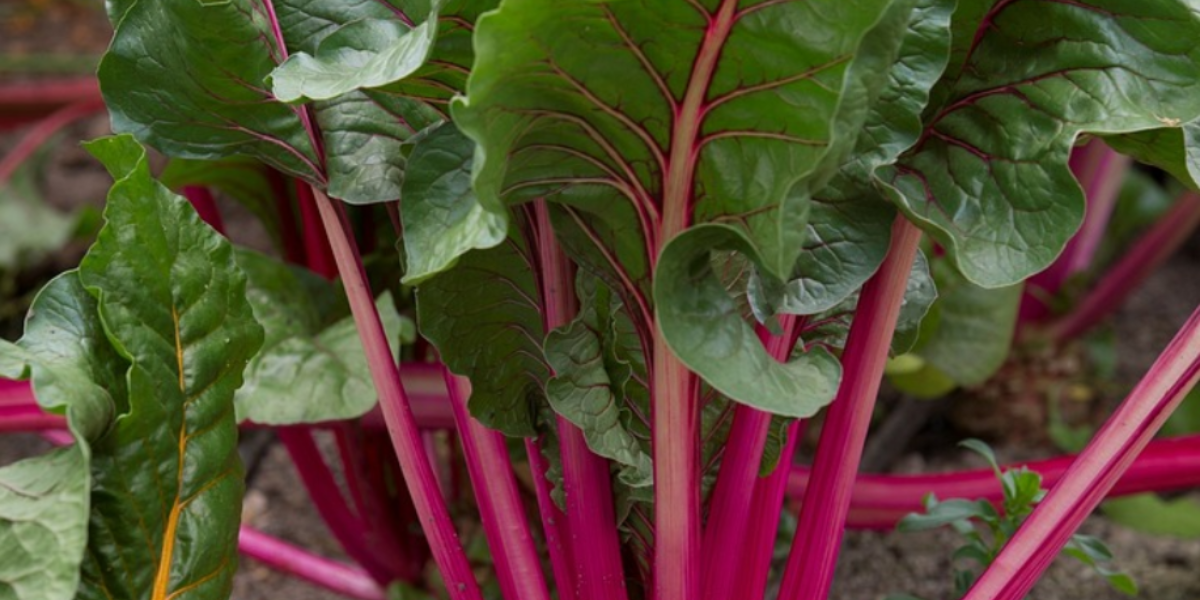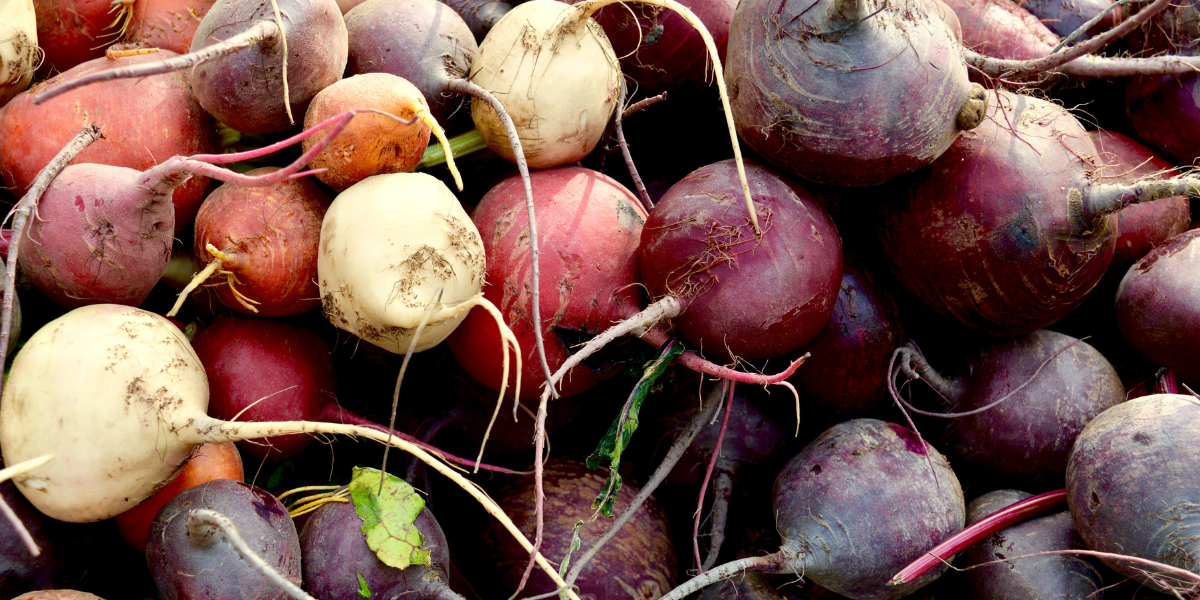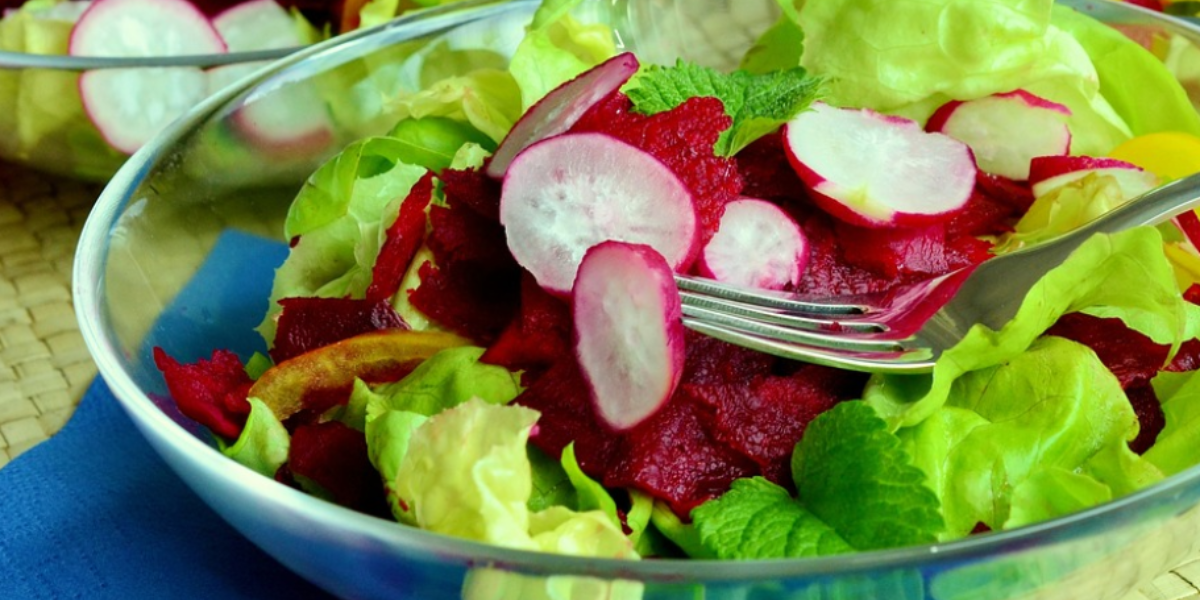Beets (Beta vulgaris), also known as beetroots) are a delicious and versatile root vegetable that is easy to incorporate into your diet. They can be eaten canned, frozen, or raw. Beets can be roasted or made as healthy additions to salads, dips, soups, smoothies, juices, and side dishes. However, they have the tendency to cause digestive issues. Do beets cause diarrhea? Hang on for an interesting read!
Beets: Background Info

While beets and beet products are gaining popularity in the natural foods market, they are not a recent discovery. Records indicate that the ancient people from Babylon, Greece, Rome, and as far as North Africa have prized the beet’s leaves, stalks, and roots for culinary and medicinal purposes. The ancient Greeks and Romans have even used beets for their alleged aphrodisiac properties.
The first official documentation of the beet’s cultivation as food in either Italy or Germany was recorded in 1542. However, during excavations on the site of the eruption of Mount Vesuvius in 79 A.D., archaeologists found paintings of beetroots preserved in ash from the walls of brothels in ancient towns. The beet has maintained its usefulness to this day. At present, the largest producer of beets in the world is Russia.
Beets, especially raw ones, have an impressive nutritional profile. They’re high in vitamins and minerals, yet are low in calories. As a matter of fact, they contain a little of almost all of the vitamins and minerals you need. Beets are naturally low-fat and cholesterol-free but they are a rich source of protein, manganese, phosphorus, fiber, copper, potassium, magnesium, folate, carbs, Vitamin C, and Vitamin B6.

A colorful diet equates to a healthy diet. When plants have different colors, it means they contain different plant nutrients. Here are the different colors of beets and their unique benefits:
- Red and purple beets – They are particularly high in a type of betalain known as betacyanins. Betalains are water-soluble nitrogen-rich pigments that provide color to some fruits and have both antioxidant and anti-inflammatory effects. Betacyanins are the ones with red-violet pigments.
- Yellow or golden beets – They are packed with betaxanthins which is the other type of betalain, but with the yellow pigment. However, betacyanins have more antioxidant properties than betaxanthins.
- Beet greens – They have a rich green color which should provide a clue to the benefits they offer. Beet greens are a great source of lutein, beta-carotene, and zeaxanthin.
In the US, the beet that we are familiar with is one of four types of beets called ‘garden beets’. However, there are five sub-types of beet that have been identified by the National Gardening Association and they include the Detroit Dark Red, Lutz Green Leaf, Formanova, Chioggia, and Golden. Other types of beet such as sugar beet and mangold are used for livestock.
Beets can look intimidating due to their vivid hues, but the very thing that makes these root vegetables so colorful also gives them their valuable nutrients. Beets, including beet juice, have been linked to a host of health benefits such as:
- Regulates blood pressure
- Fights inflammation
- Boosts endurance and athletic performance
- Maintains a healthy liver
- Prevents cancer
- Balances energy intake
- Supports brain health
- Helps with heart disease
- Reduces birth defects
- Good for the eyes
- Improves digestive health
- Strengthens bones
- Keeps your weight in check
- Helps fight cancer cells
Do Beets Cause Diarrhea?

It is a given fact that anything we eat or drink can affect the color of our stool. Beets are no exception. The dark red color of beets that almost looks purple can cause you to produce poop with red, pink, and purple hues. This usually happens when you eat beets in large amounts and is quite safe and normal. But do beets cause diarrhea? Here are some reasons why they can:
-
Beets are high in fiber.
A cup of beet has 3.8 grams of fiber which is considered high. Dietary fiber supports the growth of good gut bacteria and promotes regular bowel movement. Beets contain both soluble and insoluble fiber. Soluble fiber gives bulk to the stool while insoluble fiber draws water into the intestines and speeds up the passage of food in the digestive tract.
However, eating too much beet and other fiber-rich vegetables such as broccoli and carrots may also cause you to take in too much fiber which leads to bloating, gas, abdominal pain, and constipation or diarrhea. This is particularly noticeable if you already have low fiber consumption but suddenly add beets to your diet.
-
Beets are high in potassium.
Potassium is an essential mineral that maintains normal levels of fluid inside our cells to ensure their normal function. When we think of a potassium-rich food, the first thing that comes to mind is a banana. But do you know that beets have more potassium content than bananas? A cup of beet has 518 mg of potassium or 11% of the daily value which is 100 mg more than the potassium a banana contains.
Unfortunately, potassium can irritate the gastrointestinal tract and is known to cause stomach upset, nausea, vomiting, intestinal gas, and diarrhea. Therefore, care must be taken when consuming potassium-rich foods such as beets, spinach, and tomatoes to avoid these side effects.

-
Beets are high in Vitamin C.
Vitamin C, also known as ascorbic acid, is an antioxidant that helps strengthen our immune system to fight against free radicals that can cause illness. Our body does not produce or store vitamin C so you have to get it from your diet. Vitamin C intake for adults should not exceed 2000 mg per day.
Dietitian Katherine Zeratsky, R.D., L.D. says in an article about Nutrition and Healthy Eating on the Mayo Clinic website that, although generally safe, too much vitamin C can cause nausea, vomiting, stomach cramps, heartburn, headache, and diarrhea. Beets, as well as potatoes and oranges, are foods that are high in vitamin C.
-
Beets contain fructose.
Fructose is a type of sugar called a ‘monosaccharide’. Fructose is known as a ‘fruit sugar’ because it is naturally found in many fruits and other plant foods such as honey and sugar beets. Glucose and fructose are simple sugars that makeup 70% and 80% of the carbs contained in raw and cooked beetroots.
Some people have trouble ingesting fructose and they are considered to be ‘fructose intolerant’. When the digestive system is unable to absorb fructose, the affected person will experience gas, bloating, and diarrhea due to fermentation in the colon. Therefore, they should avoid foods that are high in fructose such as beets, apples, and watermelon.
Side Effects Of Beets

An upset stomach may result from eating beets but there are also other possible side effects such as:
- Hypotensive effects
- Impaired calcium absorption
- Fatigue or dizziness when pregnant
- Mild allergic reactions
- Formation of kidney stones
- Beeturia(pink-colored urine after beet consumption)
In addition, people with low blood pressure, allergies, kidney problems, and diabetes should completely avoid eating beets as these veggies can aggravate the symptoms that they are already experiencing.
Bottomline

Beets are packed with nutrition and are chock-full of health-promoting properties. They come in red, yellow, and green hues so no matter how you prepare them, whether boiled, roasted, juiced, or sauteed, they can add flare and flavor to your dishes. However, cooking beets can decrease their nutritional value so juicing beets is a great way to enjoy them as well as their full health benefits.
In addition, beets are natural laxatives. They are high in fiber and certain nutrients that help regulate and trigger bowel movements. So when you’re feeling constipated, this vegetable can help you. But do beets cause diarrhea? Yes, and there are four reasons why they can!

